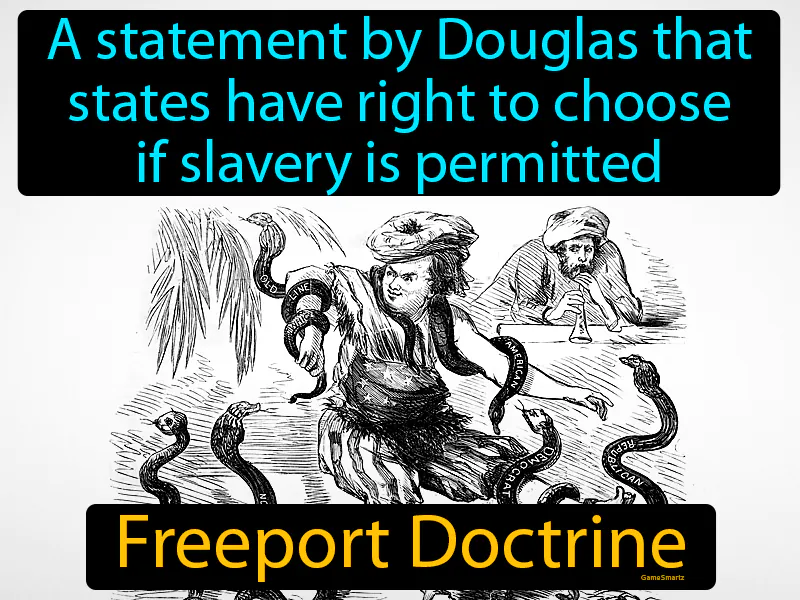Freeport Doctrine
Freeport Doctrine: Easy to understand
The Freeport Doctrine was introduced by Stephen A. Douglas during a debate with Abraham Lincoln in 1858, suggesting that territories could effectively exclude slavery by not adopting laws to protect it. This doctrine was important as it attempted to balance popular sovereignty with the Supreme Court's Dred Scott decision, which stated that Congress could not ban slavery in the territories. At the time, it highlighted the deep divisions in the United States over the issue of slavery, contributing to the tensions that eventually led to the Civil War. Today, the concept of local decision-making versus federal authority still affects us, such as in debates over state versus federal control of education or healthcare policies. For instance, if a local community decides on specific environmental regulations that are stricter than federal ones, it reflects the ongoing tension between local preferences and national standards, impacting daily life and governance.

Practice Version

Freeport Doctrine: A statement by Douglas that states have right to choose if slavery is permitted. Freeport Doctrine. The Freeport Doctrine was an idea by Stephen Douglas in 1858 suggesting that territories could effectively exclude slavery by refusing to adopt laws establishing or protecting it.